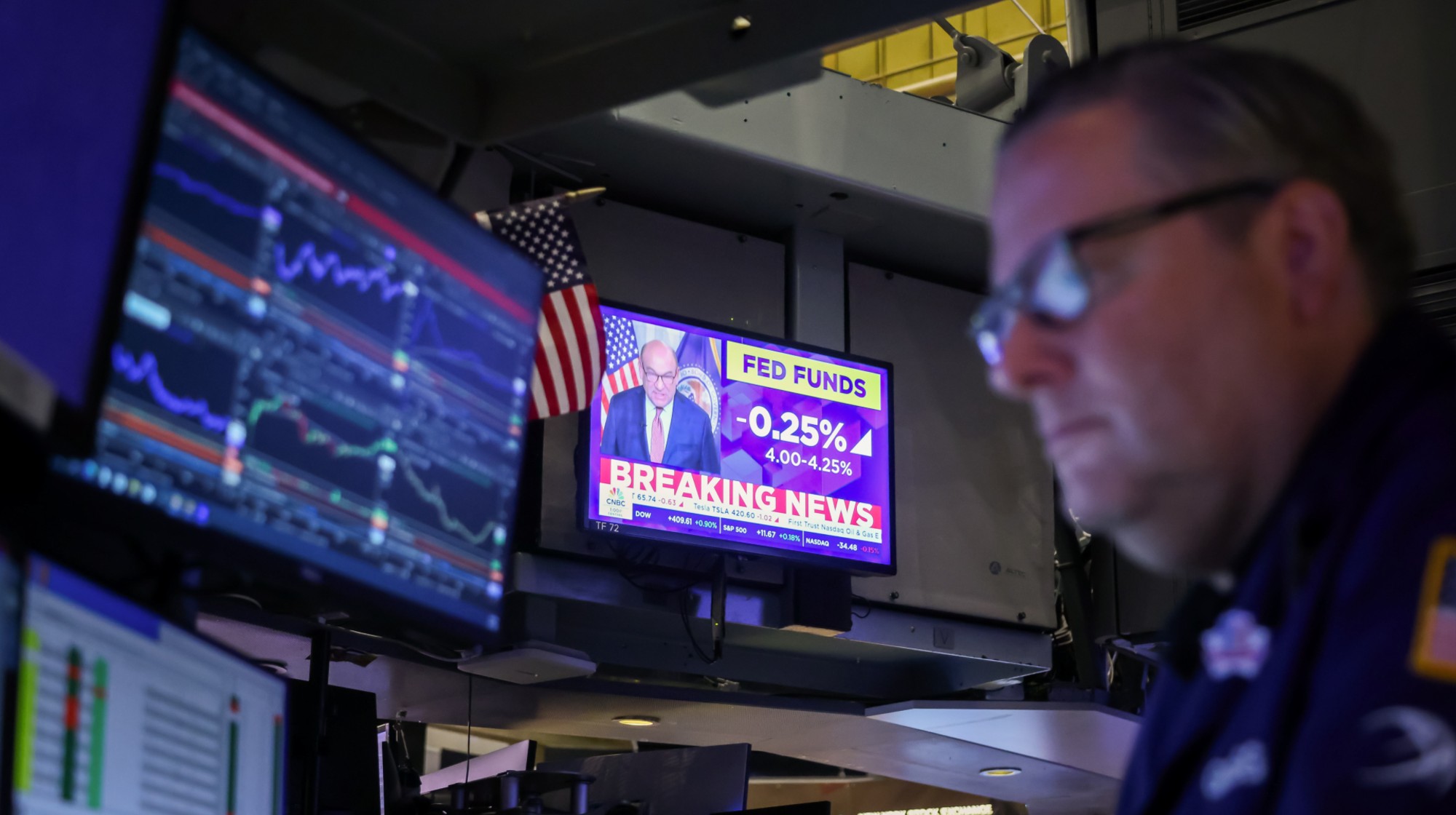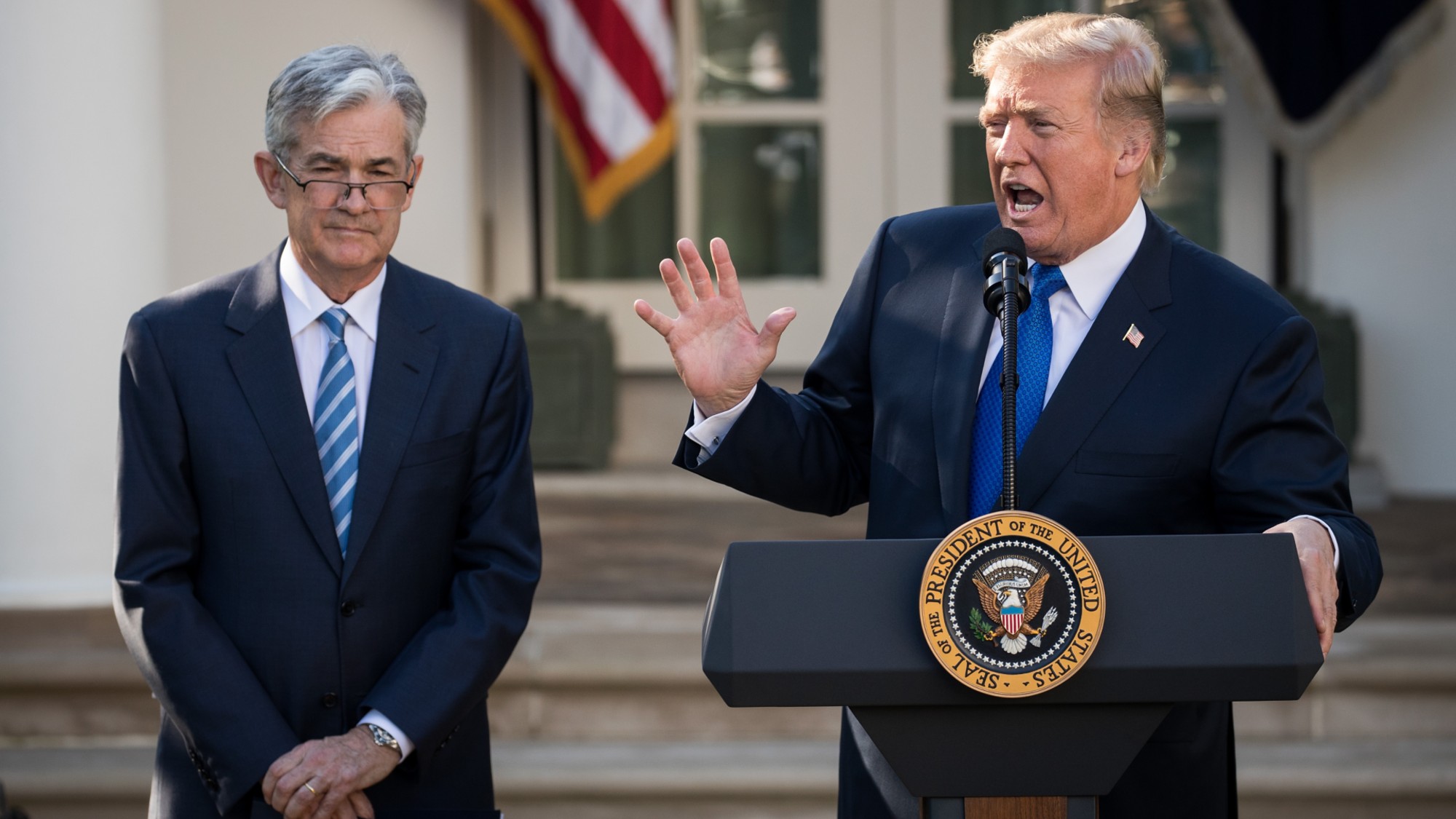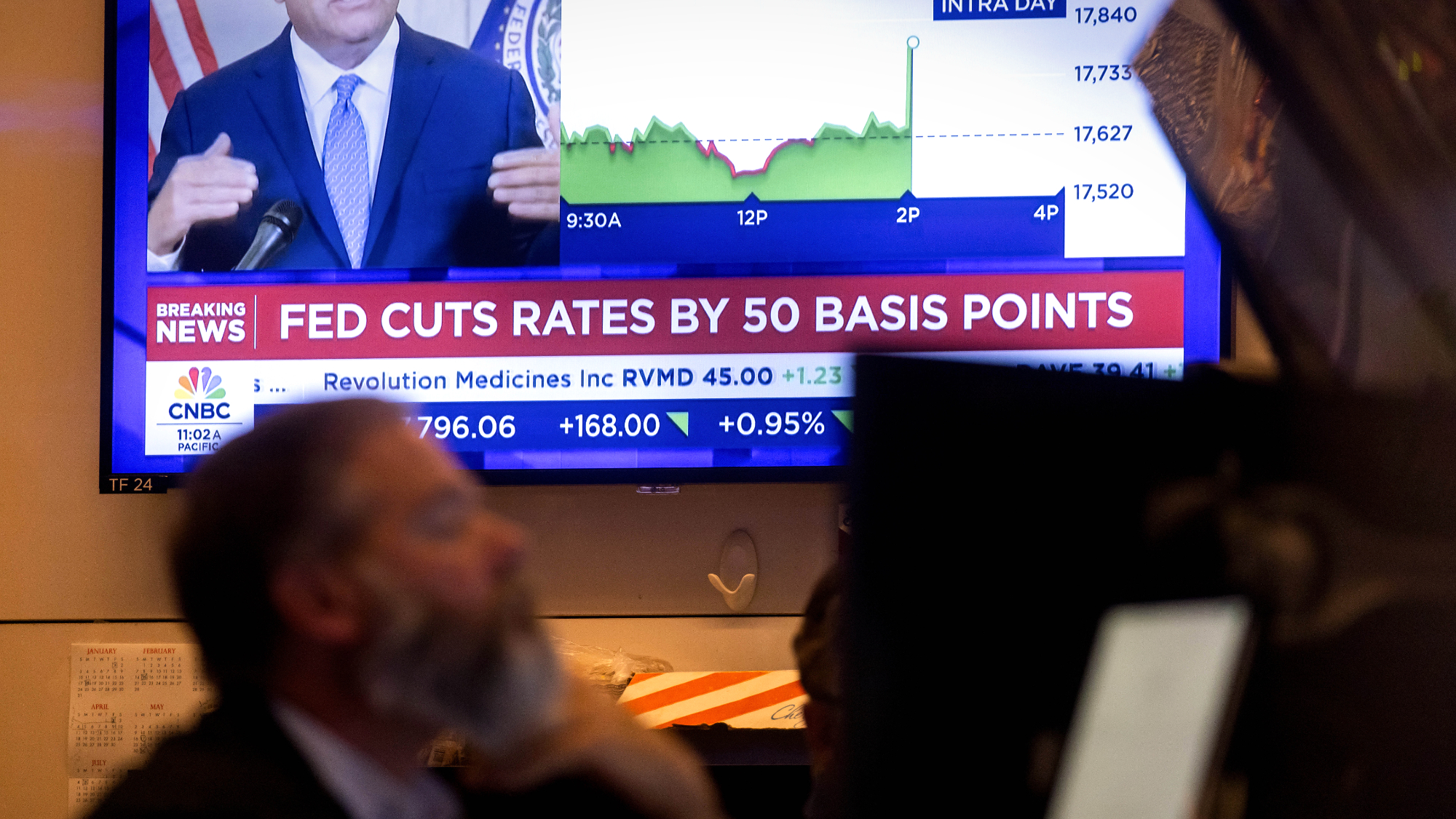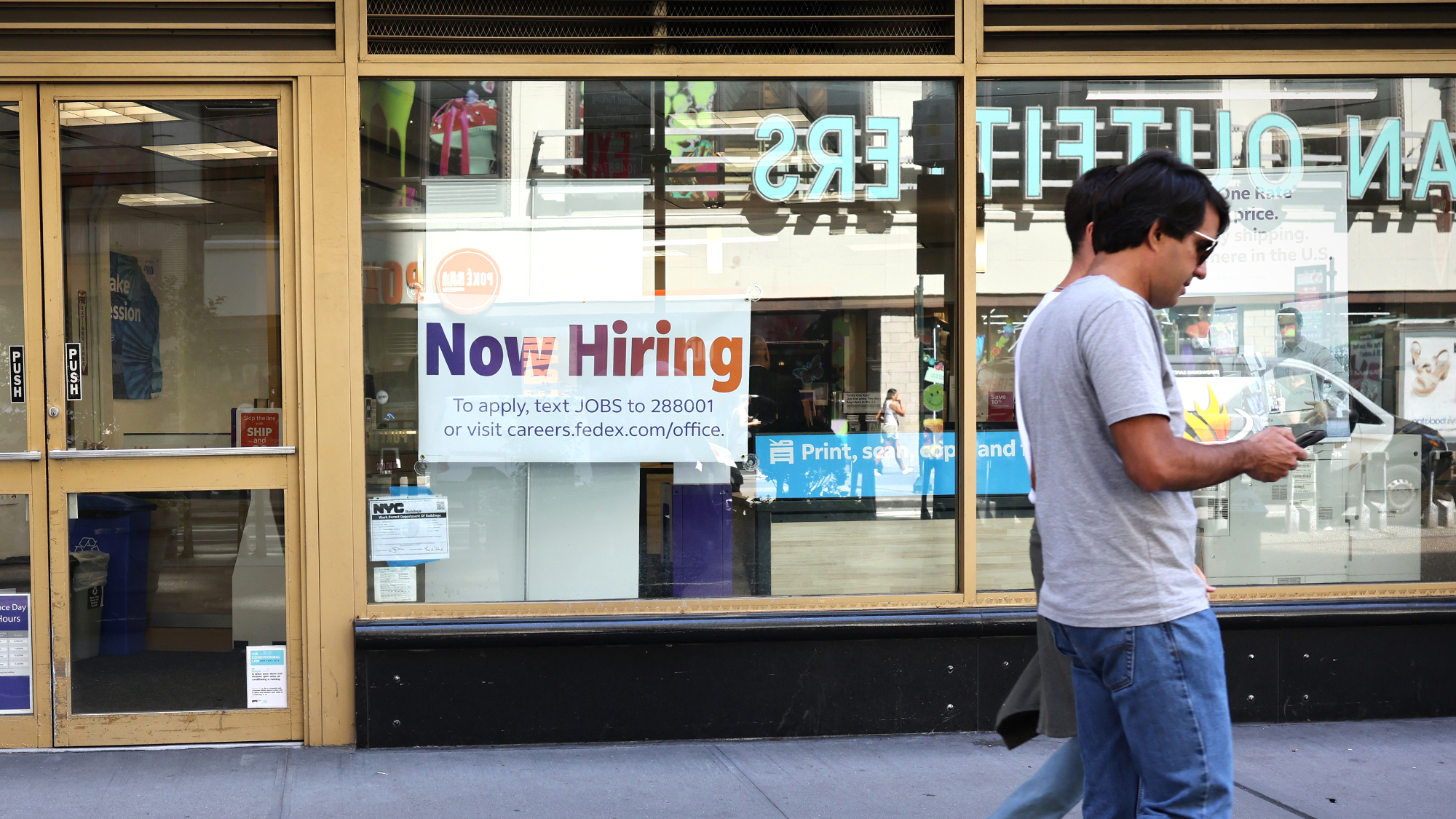Interest rates 'as likely to fall as to rise'
Sterling falls 1.5 per cent after Bank of England chief economist says interest rates could go down rather than up

A free daily email with the biggest news stories of the day – and the best features from TheWeek.com
You are now subscribed
Your newsletter sign-up was successful
Even though Britain has been out of recession for more than five years and is the strongest growing economy in the G7, Andy Haldane, the Bank of England's chief economist, said yesterday that he believes that the next move in UK interest may be down rather than up.
Speaking in a non-official capacity at a business lunch in Rutland yesterday, Haldane said that he could see good reasons for interest rates to move in either direction.
Interest rates have been held at 0.5 per cent since March 2009 with most analysts predicting that they would begin to rise again some time in 2015 or early 2016, so the suggestion that they may be reduced again is "a pretty extraordinary prospect", The Guardian says.
The Week
Escape your echo chamber. Get the facts behind the news, plus analysis from multiple perspectives.

Sign up for The Week's Free Newsletters
From our morning news briefing to a weekly Good News Newsletter, get the best of The Week delivered directly to your inbox.
From our morning news briefing to a weekly Good News Newsletter, get the best of The Week delivered directly to your inbox.
Haldane said that if rates were to be set by a computer algorithm, rather than the Bank of England's Monetary Policy Committee (MPC) then "the optimal path for interest rates would involve them being cut in the short-run towards zero for around a year".
The BBC's economics editor Robert Peston described Haldane's comments as "big stuff".
The pound fell sharply in response to the comments falling as low as $1.4738 in afternoon trading – 1.5 per cent lower than at the start of the day.
So why does Haldane think that cutting interest rates is as likely a scenario as raising them? The reason is simple, says the Guardian. The UK has experienced two years of solid growth and falling unemployment, yet despite this, inflation has fallen. Financial markets have long been anticipating a rates increase, but forecasts have been consistently pushed back and gradually predictions of the eventual peak in rates have been lowered.
A free daily email with the biggest news stories of the day – and the best features from TheWeek.com
Some members of the MPC believe that the falling oil price has contributed to low inflation, as well as falling agricultural commodity prices and low wage growth.
The government's inflation target for the next two years is set at 2 per cent, but Haldane said: "The risks to inflation at that horizon are plainly two-sided. But my personal view is that these risks are skewed to the downside."
So when will interest rates rise again? "Not now, that’s for sure," said the Daily Telegraph's Jeremy Warner. "Maybe never. OK, so never say never, but very probably not for a long time."
-
 The Gallivant: style and charm steps from Camber Sands
The Gallivant: style and charm steps from Camber SandsThe Week Recommends Nestled behind the dunes, this luxury hotel is a great place to hunker down and get cosy
-
 The President’s Cake: ‘sweet tragedy’ about a little girl on a baking mission in Iraq
The President’s Cake: ‘sweet tragedy’ about a little girl on a baking mission in IraqThe Week Recommends Charming debut from Hasan Hadi is filled with ‘vivid characters’
-
 Kia EV4: a ‘terrifically comfy’ electric car
Kia EV4: a ‘terrifically comfy’ electric carThe Week Recommends The family-friendly vehicle has ‘plush seats’ and generous space
-
 The end for central bank independence?
The end for central bank independence?The Explainer Trump’s war on the US Federal Reserve comes at a moment of global weakening in central bank authority
-
 Should Labour break manifesto pledge and raise taxes?
Should Labour break manifesto pledge and raise taxes?Today's Big Question There are ‘powerful’ fiscal arguments for an income tax rise but it could mean ‘game over’ for the government
-
 What are stablecoins, and why is the government so interested in them?
What are stablecoins, and why is the government so interested in them?The Explainer With the government backing calls for the regulation of certain cryptocurrencies, are stablecoins the future?
-
 Fed cuts interest rates a quarter point
Fed cuts interest rates a quarter pointSpeed Read ‘The cut suggests a broader shift toward concern about cracks forming in the job market’
-
 How will Wall Street react to the Trump-Powell showdown?
How will Wall Street react to the Trump-Powell showdown?Today's Big Question 'Market turmoil' seems likely
-
 Will Rachel Reeves have to raise taxes again?
Will Rachel Reeves have to raise taxes again?Today's Big Question Rising gilt yields and higher debt interest sound warning that Chancellor may miss her Budget borrowing targets
-
 Fed cuts rates half a point, hinting victory on inflation
Fed cuts rates half a point, hinting victory on inflationSpeed Read This is the Fed's first cut in two years
-
 US job growth revised downward
US job growth revised downwardSpeed Read The US economy added 818,000 fewer jobs than first reported